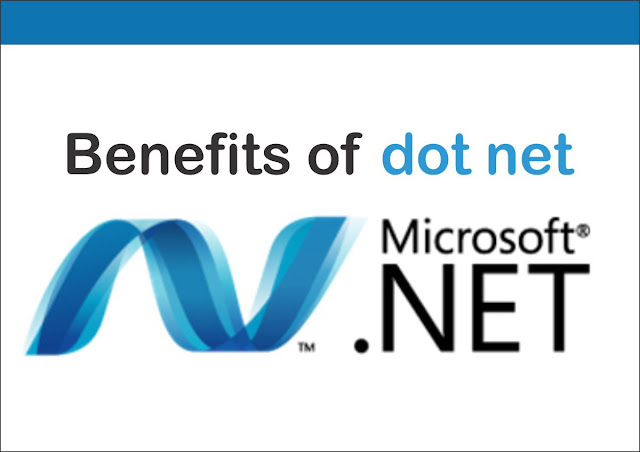Dot net benefits
Back in the late 90s, Microsoft started working on a managed code-based platform that would be executed under a runtime environment. The idea was to improve software development and handle tasks such as active memory management and security operations that developers had to take on themselves. This is how .NET was born.
Now the choice of many enterprises, startups, freelancers and offshore development services offshore development services, .NET grew from those early days to become a fully-fledged ecosystem that includes .NET Framework, .NET Core, and Xamarin for developing desktop and web applications. Microsoft decided to open-source it and expand the base software development framework and its popularity rose even more.
Today, .NET development platform provides a set of benefits for developers working on different types of applications thanks to how well it adapts for most software development phases. That’s because of its 3 main implementations that allow working on all kinds of projects.
.NET development platform implementations
Each of the .NET development platform implementations contains frameworks and libraries needed to build different kinds of applications. That’s why .NET development platform is such a comprehensive solution for enterprises, development teams, and offshore software outsourcing companies. This is what it includes:
.NET Framework: is the first implementation, which includes 3 main application models (Windows Presentation Foundation to create a graphic interface for desktop apps, Windows Forms to develop rich graphics in desktop applications, and ASP.NET to work on dynamic websites and web applications). It also incorporates the Base Class Library that includes common functionalities and a set of reusable elements.
.NET Core: a rebuild of .NET Framework, this implementation allows developers to work with it in Linux and OS X systems. In other words, it gives the teams the possibility to develop applications outside the Windows environment. It includes the Universal Windows Platform (an API to develop universal apps that run across Windows devices) and ASP.NET Core (a rebuild of ASP.NET to create web apps and services as well as mobile backends).
Xamarin: the implementation used for mobile apps, Xamarin is also capable of developing Mac OS products.
The three implementations use a common infrastructure with runtime components, languages, and compilers that make it all work together for better results. It’s also worth mentioning that Microsoft brought more consistency to .NET with the release of .NET Standard, a library with APIs from the 3 implementations that allows developers to use a single base class library for easier use across platforms.
Benefits of working with .NET
Using the .NET development ecosystem is a great way for companies, freelancers and offshore software development outsourcing companies to leverage a powerful set of development tools that offer many benefits. Some of them include the following:
Object-oriented programming: .NET is based on the OOP model that breaks the software down into little pieces that are more easily handled and combined. The modular structure defines the behavior of each object and how they interact with each other by making the code more manageable. It also means that there’s less coding to be done, and that all kinds of components can be reused across different projects.
Visual Studio IDE: .NET comes equipped with an Integrated Development Environment (IDE) that provides developers with all they need to create an application. Its name is Visual Studio and it can help build and debug software in different languages while also allowing for its customization to meet user demands.
Simple caching system: .NET’s caching system is simple to use and can be customized in its implementation for better performance and scalability. It also can be extended to become more versatile and robust.
Cross-platform: while this can only be said about .NET Core, it’s worth pointing out because of the flexibility it provides to .NET developers. Basically, it means that teams can use Core to build applications for Windows, Linux, and OS X. Additionally, Core is open source, which guarantees that the tool’s growth and continuous upgrade while also creating a meeting point for all kinds of engineers to share their knowledge.
Flexible deployment: another benefit of working with .NET Core is that developers can create applications that include it or that require a standalone installation. It only takes the copying of a folder for the deployment itself to take place, which makes the process fairly easy for everyone.
.NET Standard: since 2016, .NET development ecosystem includes .NET Standard, a set of class libraries that can be used in .NET Framework, .NET Core, and Xamarin. It includes common functions such as database interaction and graphics rendering to simplify the developer’s work and ensure that the application works exactly the same across platforms.
Support from Microsoft and its own community: one of the best things of any piece of tech is for it to have wide support in case any problems arise. That’s the case with .NET, that enjoys a thriving community coming from .NET and .NET Core users (that turned the ecosystem into one of the most widely used beyond web development). .NET also boasts the support from its parent company, Microsoft, that updates it regularly with new features and functionalities, addressing its user base demands.
.NET has come a long way since the days it was merely a framework to become a sophisticated ecosystem capable of developing applications for all kinds of projects and platforms. It is robust, has a reliable performance, includes a powerful set of libraries, and has the support of a large community and a tech giant.
All of that explains why is one of the most widely used solutions to develop desktop and web applications, and why companies of all sizes as well as independent engineers and offshore software development companies still include them in their service portfolio. Using .NET today is a good and safe choice as it ever was and its constant evolution will make sure that doesn’t change any time soon.





No comments